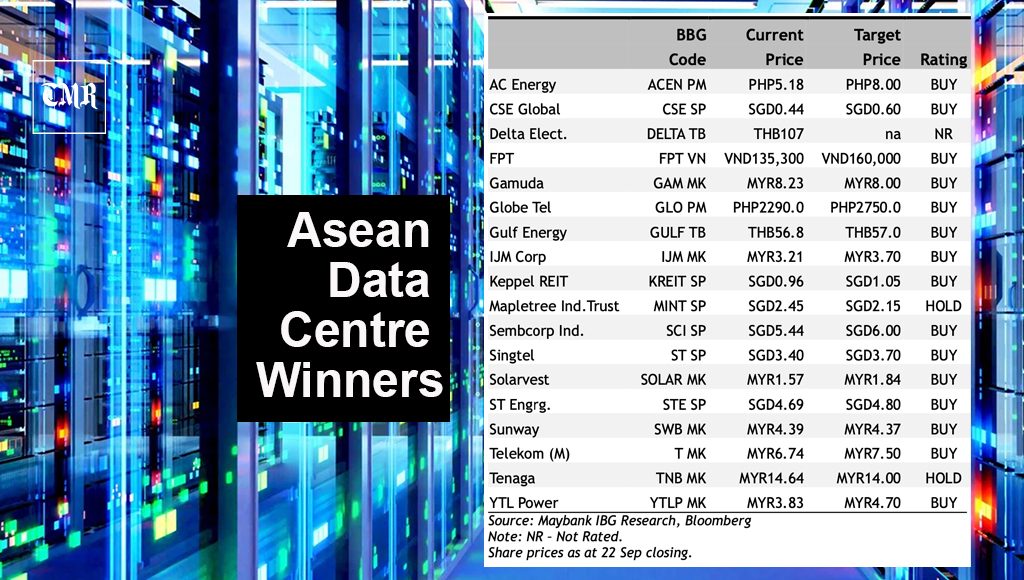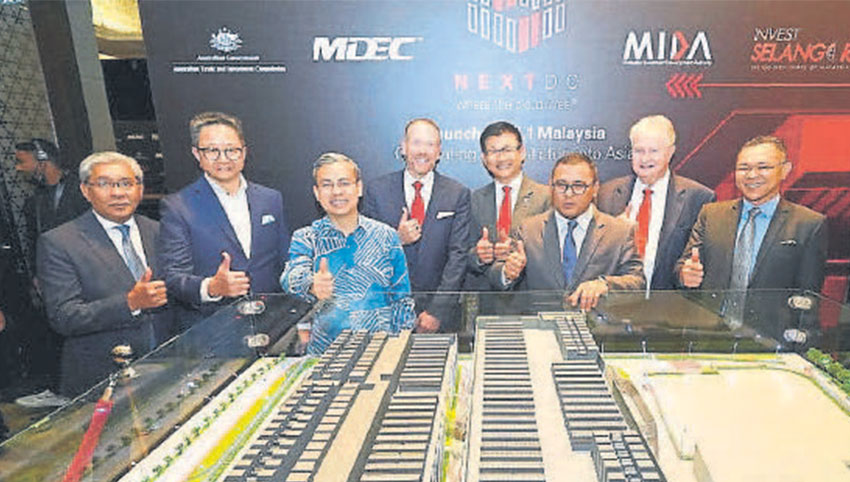
KUALA LUMPUR — US President Donald Trump’s plan to rescind the Biden-era artificial intelligence (AI) chip export rule presents opportunities for Malaysia to expand its AI chip industry and booming data centre sector.
It could also deepen the country’s specialisation in high-tech services and manufacturing, in line with national strategies to move the semiconductor industry up the value chain. “It can potentially boost foreign direct investments (FDIs) and export-driven growth for Malaysia,” UOB Kay Hian Wealth Advisors Sdn Bhd head of investment research, Mohd Sedek Jantan, told Bernama in response to a reported move by the United States to rescind curbs on chip exports.
He said it could enhance Malaysia’s access to high-performance AI chips such as Nvidia’s H100 and H200 series, which are critical for training large language models and powering next-generation data infrastructure. “This relaxation could significantly benefit Malaysia’s booming data centre ecosystem, which has FDIs from global technology giants like Amazon Web Services, Microsoft and Google since 2023, which are American companies,” he added.
Mohd Sedek said Malaysia’s ability to attract such capital stems from its comparative advantage in data-hosting capabilities, such as offering relatively low-cost electricity, political stability and geographic centrality in ASEAN. Increased chip access would enable Malaysia to deepen its specialisation in high-tech services and manufacturing, strengthening its position in global value chains.
“Furthermore, this policy shift could facilitate a broader transformation within Malaysia’s semiconductor ecosystem. Under the National Semiconductor Strategy (NSS), the government has signalled its intent for the sector to move up the value chain towards higher margin, front-end activities such as integrated circuit (IC) design and wafer fabrication,” he continued.
Companies such as Intel and Infineon have already pledged significant capital of US$7 billion and RM8 billion, respectively, for their Malaysian operations, particularly in Penang and Kulim in Kedah.
As a result, Trump’s policy pivot could accelerate this transition by removing technological constraints, enabling Malaysian firms and institutions to engage more directly with advanced chipsets.
“Access to superior technologies can help Malaysia leapfrog into more innovative segments of the chip value chain, enhancing its total factor productivity and export complexity,” he said.
However, he cautioned that increased compliance burdens might arise from Washington’s intensified focus on curbing technology leakages to China.
“Malaysia has previously been flagged in US policy circles as a potential transhipment hub for dual-use technologies, and the Trump administration is likely to amplify scrutiny on such routes. Even if the licensing regime formally lifts quantitative restrictions, it may simultaneously impose qualitative requirements such as end-user certifications, real-time monitoring of exports, and stricter enforcement under Malaysia’s Strategic Trade Act (STA) 2010,” he added.
Mohd Sedek said these requirements could inflate operating costs, particularly for small and medium enterprises (SMEs) in the semiconductor sector, thereby reducing their profitability and global competitiveness.
According to news reports, the Trump administration plans to rescind Biden-era AI chip curbs as part of a broader effort to revise semiconductor trade restrictions that have drawn strong opposition from major tech companies and foreign governments. The repeal, which is not yet final, seeks to refashion a policy launched under President Joe Biden that created three broad tiers of countries for regulating the export of chips from Nvidia and others. The Trump administration reportedly will not enforce the so-called AI diffusion rule when it takes effect on May 15. — BERNAMA
RELATED ARTICLES

Tencent to establish data centre in Malaysia by July this year

Potential winners for data centre demand in Asean

Nvidia buys Mellanox for RM28b in data centre push

Maxis ‘Right Cloud’ simplifies cloud adoption for biz

Australia’s NextDC to open 1st overseas data centre in Malaysia

AirTrunk raises RM1.4b to build S’pore data centre
The post US move to ease curbs on chip exports an opportunity for Malaysia’s AI and data centre sectors appeared first on The Malaysian Reserve.
